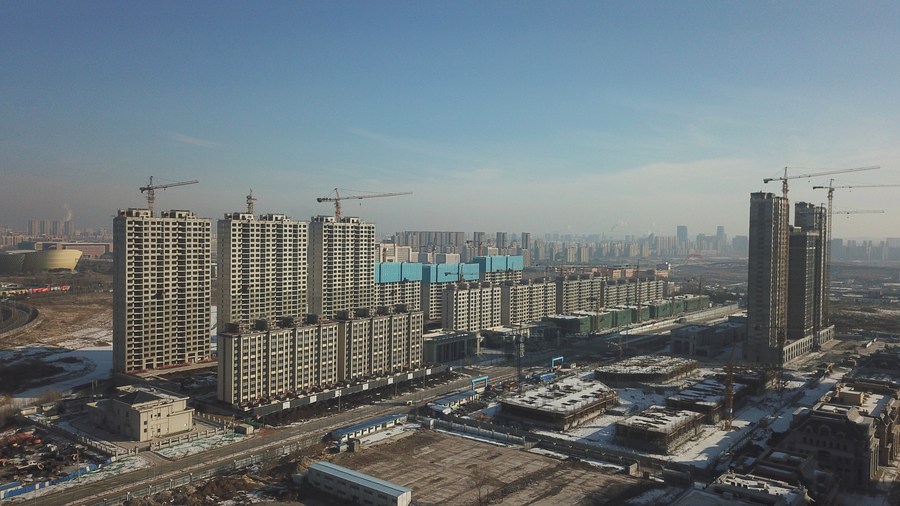China's housing market continues to ease in August
 0 Comment(s)
0 Comment(s) Print
Print E-mail Xinhua, September 16, 2021
E-mail Xinhua, September 16, 2021

China continued to see its housing market ease in August under strengthened market regulations, registering slower month-on-month and year-on-year growth of home prices in 70 major cities, according to the National Bureau of Statistics (NBS) Wednesday.
New home prices in four first-tier cities -- Beijing, Shanghai, Shenzhen and Guangzhou -- rose 0.3 percent month on month in August, representing a slower growth pace from the 0.4 percent seen in July, according to the NBS data.
A total of 31 second-tier cities witnessed a month-on-month increase of 0.2 percent in new home prices, while 35 third-tier cities saw month-on-month growth in new home prices remain unchanged.
The operation of the property market has sustained stable momentum under the principle -- "housing is for living in, not for speculation," NBS spokesperson Fu Linghui told a press conference Wednesday.
The NBS data also showed that in August, second-hand home prices in second-tier cities stayed the same, while those in third-tier cities edged down 0.1 percent month on month.
On a year-on-year basis, new home prices in first-tier cities rose 5.7 percent in August, down from the 6-percent growth in July, while those in second-tier and third-tier cities went up 4.4 percent and 2.8 percent, respectively.
In this year's government work report, China reiterated the principle that "housing is for living in, not for speculation," vowing to keep the prices of land and housing as well as market expectations stable.
Based on the principle as well as the country's regulatory control on forestalling and defusing financial risks, bank loans issued to China's property sector saw slower expansion in the first six months.
Official data shows that outstanding property loans went up 9.5 percent from last year to 50.78 trillion yuan (7.9 trillion U.S. dollars) as of the end of June. According to the country's major commercial banks, the new loan quotas issued were mainly for meeting residents' demands for buying their own houses to live in.
In the first eight months, key indicators such as sales of commercial residential buildings and investment in property development also eased, according to Fu.
During the period, the two-year-average growth rate of commercial housing sales in terms of floor area dipped 1.1 percentage points from Jan.-July to 5.9 percent, while that in terms of value eased 1.4 percentage points to 11.7 percent.
Investment in property development is basically stable with two-year-average growth rate down 0.3 percentage points from first seven months to 7.7 percent.
The property market is expected to maintain stable growth, Fu predicted, citing factors including the built-up of market-related systems and continued regulatory measures.





